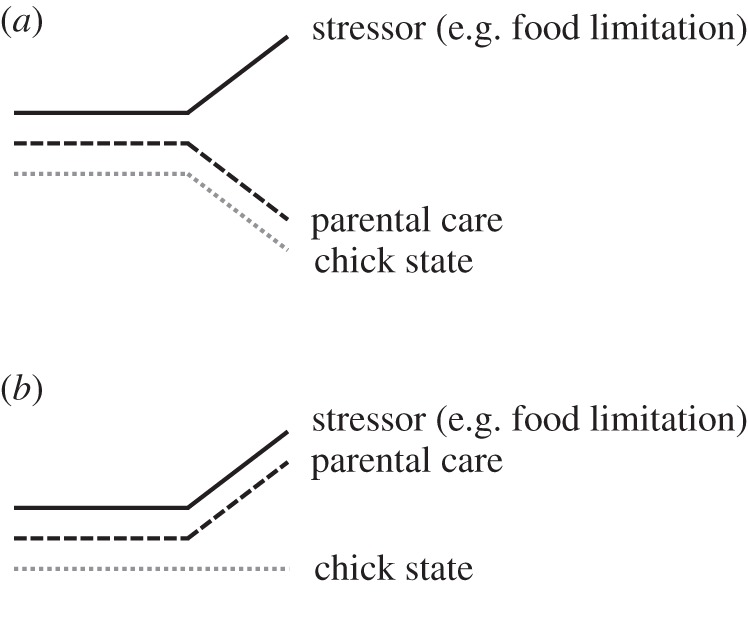Figure 1.

Schematic of study hypotheses. (a) The fixed investment hypothesis states that parental care is not matched to compensate fluctuations in food availability, and chicks bear negative consequences when food conditions deteriorate. This hypothesis is used to predict adult kittiwake responses and effects on offspring for the Pacific colony. (b) The flexible investment hypothesis states that parental care tracks food availability (i.e. care increases when food conditions deteriorate, in order to maintain chick state). This hypothesis is used to predict adult responses and effects on chicks for the Atlantic colony. However, because food stress in this study is induced physiologically and does not reflect actual food availability, offspring at the Atlantic colony are predicted to show an improving state.
